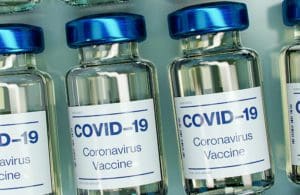
[Photo by Daniel Schludi on Unsplash]
Pfizer (NYSE:PFE) and BioNTech (NSDQ:BNTX) have decided to offer to inform clinical trial volunteers in its COVID-19 vaccine whether they received a vaccine or placebo. Those who received a placebo will be eligible to receive the first dose of vaccine by March 1 and stay in the study. A second dose will be administered roughly three weeks after the first dose.
Roughly half of the 44,000-plus participants in the BNT162b2 vaccine trial received a placebo.
The question of whether to vaccinate placebo recipients in COVID-19 vaccine studies is difficult to answer. “We face this in every clinical trial, particularly on data monitoring committees,” said Dr. Steven Goodman, professor of epidemiology at Stanford University, in an FDA advisory meeting for the Pfizer-BioNTech vaccine on Dec. 10. “There is tension between actions that are good for an individual, which in the current setting might mean giving them a vaccine immediately, and what’s best for society, which might mean holding off on that vaccine so placebo controlled randomized trials can continue,” he said.
Before their vaccine won emergency use authorization, Pfizer and BioNTech informed the FDA that they would plan to offer vaccination to placebo recipients 16 years of age and older.
Pharmaceutical companies are not obligated to provide immediate vaccination to participants in COVID-19 vaccine trials, Goodman said. Several groups, including the CDC, have devised prioritization criteria to identify the optimal schedule of mass vaccination. “And I haven’t seen one that includes trial participation as a basis for jumping the queue,” Goodman said. “That is not considered a reason to get it before somebody else who might deserve it or need it because of higher risk or other consideration. “